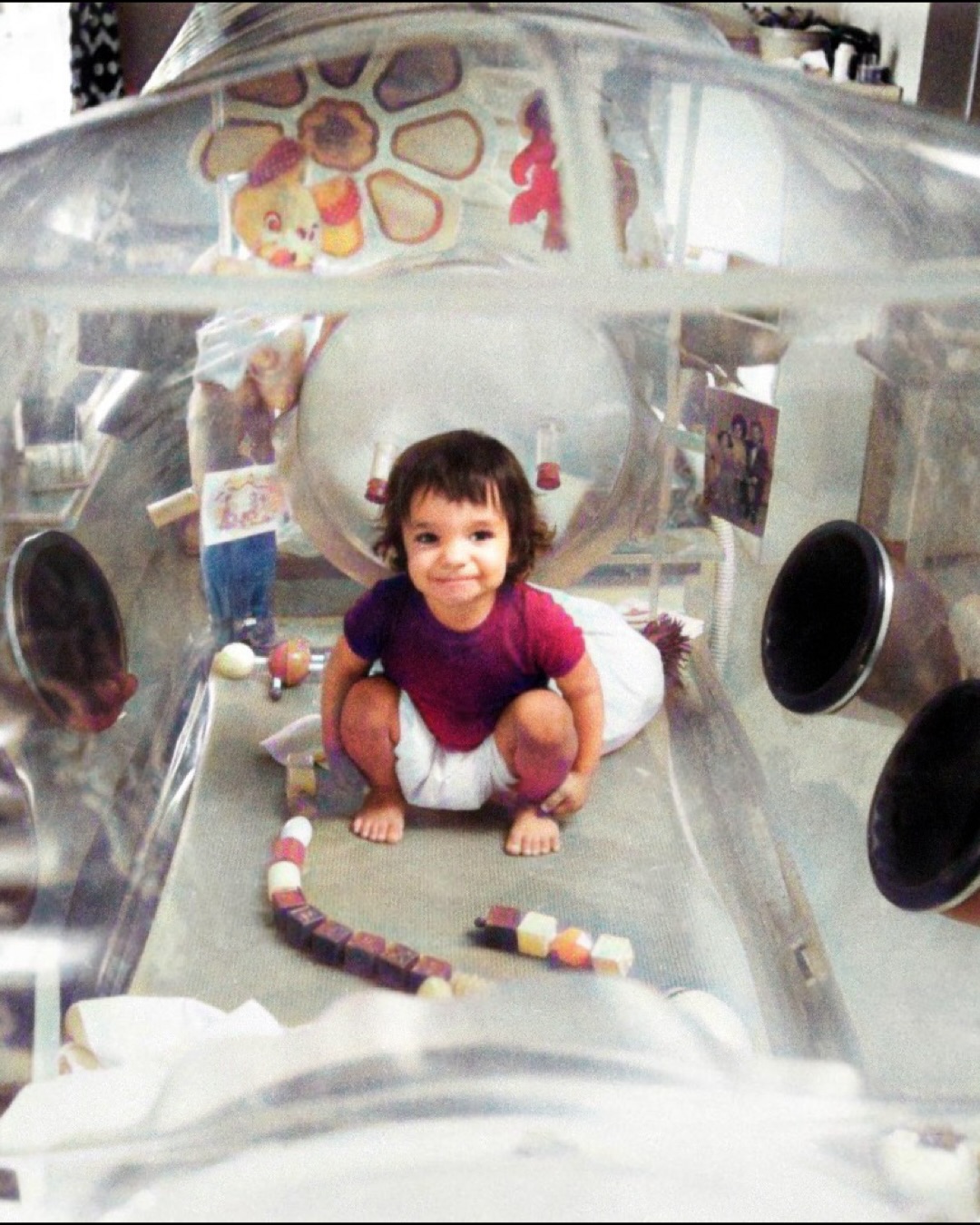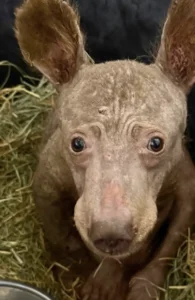In 1971, a baby named David Phillip Vetter was born in Houston, Texas, with a rare and life-threatening genetic condition known as severe combined immunodeficiency (SCID). This disorder left David without a functioning immune system, making him incredibly vulnerable to even the most minor infections. To protect him, doctors placed David in a sterile plastic bubble, earning him the nickname “Bubble Boy.”
A Childhood in Isolation
David’s sterile environment was unlike anything the world had seen before. With the help of NASA engineers, his bubble consisted of interconnected chambers filled with filtered air. He was unable to directly touch his family, and every toy, piece of clothing, or item of food that entered his bubble had to be sterilized first. Despite this, David was a smart, curious, and playful child, often exploring his surroundings in the confines of his transparent world.
Though he grew up in isolation, David’s story captured the hearts of many around the world. His life became a symbol of both hope and tragedy, as his condition led to debates over the ethics of extreme medical isolation and experimental treatments.
The Search for a Cure
In hopes of providing David with a functioning immune system, doctors turned to bone marrow transplants. However, finding a perfect match was a challenge. In 1983, David received a marrow transplant from his sister, Katherine, but the procedure came with an unforeseen complication: the transplant carried the Epstein-Barr virus (EBV), which caused lymphoma, a type of cancer.
Despite this setback, David’s doctors did not give up. His case continued to serve as a beacon of hope for medical researchers who were searching for a cure for SCID. However, on February 22, 1984, David passed away at just 12 years old due to complications from the lymphoma.
A Legacy That Transformed Medicine
David Vetter’s short life may have been a tragedy, but his case left a lasting legacy in the medical field. His condition led to important advancements in the treatment of SCID and other rare immunodeficiency disorders. Thanks to the research spurred by David’s story, newborn screening for SCID is now widely available in many countries.
His case also contributed to significant progress in gene therapy and bone marrow transplant techniques, offering hope for other children with SCID and similar conditions. Today, many babies born with SCID can now receive treatment and live healthy lives, thanks to the groundbreaking medical advancements that arose from David’s case.
Remembering David Vetter
David’s life was short, but his courage in the face of unimaginable circumstances changed the future of medicine. His story continues to inspire doctors, researchers, and the public alike, reminding everyone of the human side of medical science and the importance of continuing the fight against rare diseases. David’s legacy lives on, not just in the advancements in medicine, but in the awareness and empathy it has raised for those suffering from immunodeficiency disorders.



